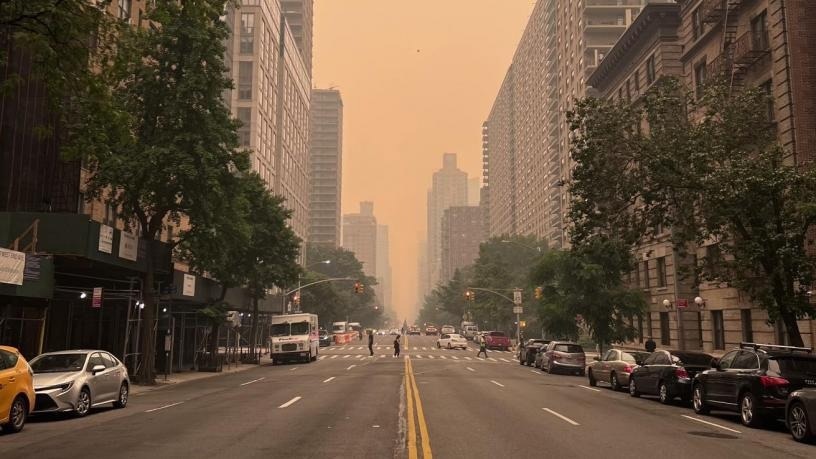When a huge cloud of wildfire smoke settled into the city this week, even healthy New Yorkers encountered watering eyes, sore throats, and headaches.

Image Credit: Angela Meadows
On Tuesday and Wednesday, the air included more of the smallest, most hazardous particles (2.5 microns and smaller) than it had since daily measurements began in 1999. New York had the worst air quality of any major metropolis in the globe at one point.
V. Faye McNeill, Professor of chemical engineering and earth and environmental sciences, is an atmospheric chemist and air quality expert, as well as the PI and Co-Lead of the Clean Air Toolbox for Cities. McNeill details New York City’s air quality crisis.
How Long Is This Situation Going to Last?
The smoky air is being produced by uncontrollable wildfires in Quebec. This current air quality emergency could extend a few more days, though as the smoke advances to the Midwest, altering wind patterns might provide relief by Friday.
How Bad has Air Quality Been During this Emergency? Is This a “New Normal?”
The Hazardous category, which has been attained late on Tuesday and Wednesday, was about as severe as it gets. As the climate changes, one should expect more intense fires to emerge, affecting air quality far away. In New York City, however, more than one of these events is seldom noticed in a year.
How to Keep Ourselves Safe During This Emergency?
It is advised that everyone, especially those with heart or lung problems, children, and the elderly, restrict their outdoor activity as much as possible.
Some individuals believe it is best to turn off the AC since it may bring in outdoor air. It is indeed actually best to leave the AC on, especially if they are having trouble breathing and need it to maintain a comfortable temperature.
What Extra Precautions Can People With Asthma Take?
Running air purifiers running bedrooms can help children with asthma. Wearing a filtering mask (KN95, N95, KF94) outside may also help if people have asthma that is aggravated by air pollution or another heart or breathing condition.
It is better to carry the rescue inhaler if individuals are not aware of whether or not asthma is induced by pollution.